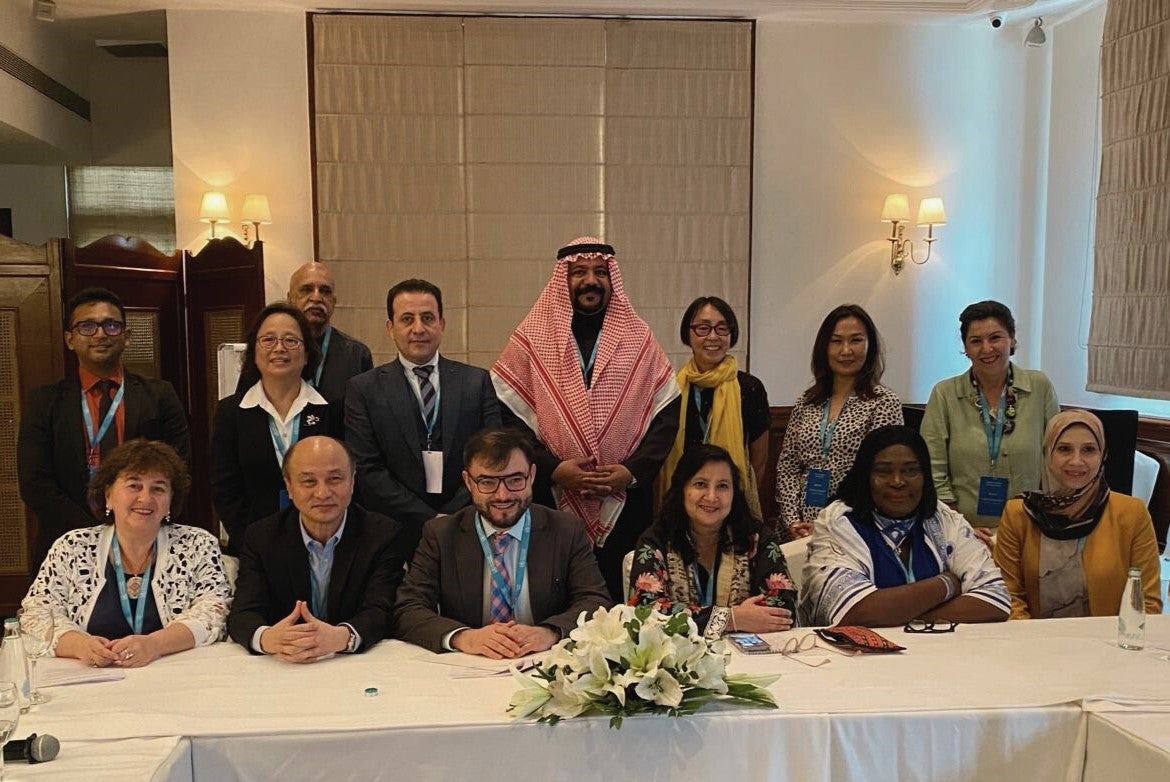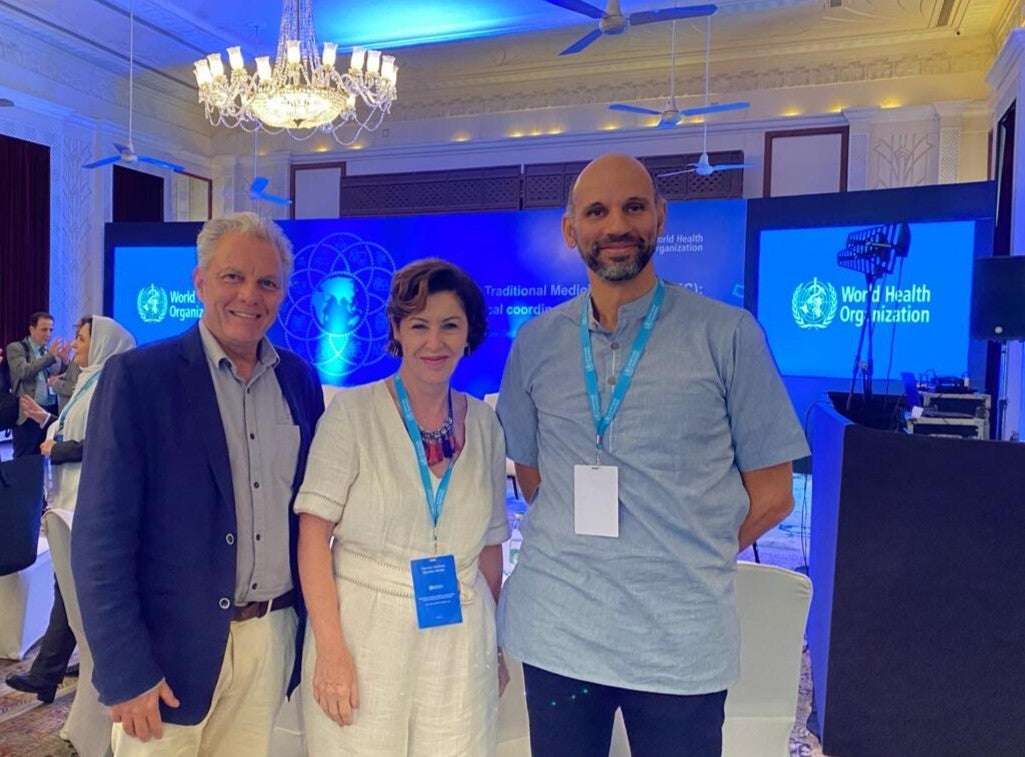
São Paulo, April 30, 2024 - From March 19-22, 2024, the Latin American and Caribbean Center on Health Sciences Information of the Pan American Health Organization/World Health Organization (BIREME/PAHO/WHO) was in India to participate in two meetings organized by the WHO, in New Delhi and Jamnagar, to plan the activities of the new Global Traditional Medicine Centre (GTMC/WHO) for the 2024-2025 biennium.
The meetings brought together experts and technicians from over 40 countries across the six WHO regions, including researchers, policymakers, healthcare providers, representatives of civil society organizations, and WHO staff. From PAHO, the participants included João Paulo Souza, director of BIREME, Verônica Abdala, manager of Information Products and Services at BIREME, and Jonas Gonseth-Garcia, advisor on Quality of Health Systems and Services (HSS).
The work agenda covered the main areas of activity of the WHO Global Traditional Medicine Centre, focusing on the development of the body of knowledge and evidence on traditional medicines (which includes research priorities and the Global Library of Traditional Medicine), the introduction of safe, effective and culturally appropriate traditional practices into national health systems, the registration and evaluation of the use of these practices in health services (with emphasis on the traditional medicine chapter of ICD-11), biodiversity and intellectual property, as well as the WHO’s own global strategy for Traditional Medicine.
Regarding the Global Library, Verônica Abdala reported that the discussions “permeated two days of work, with general conferences in the morning and working groups in the afternoon, ending each day with plenary discussions”. Coordinated by BIREME, three focus group sessions were held with participants to define high-level specifications, such as the needs of potential users of the global information platform. Verônica Abdala explained that some proposed names were presented and discussed, and that “Global Library of Traditional Medicine” was chosen. With this, “we will build and implement a platform to collect, organize and make visible the knowledge and evidence related to traditional health practices that exist in the different WHO regions and their countries. The point is that this library will facilitate access to information, and, in some way, support global decision-making on the issue,” she said.
João Paulo Souza, director of BIREME, who was also present at the mission, emphasized the importance of libraries in this context, “because there is a heritage of traditional knowledge in our countries that is being lost. This traditional knowledge is translated into practices based on natural resources originating in the rich biodiversity of our different biomes and ecosystems. Thus, the loss of this knowledge not only limits the potential for economic and social development of indigenous, rural, riverside and forest communities, but also means a delay in the scientific and technological development of therapeutic resources. Bear in mind that a significant part, if not most, of the medicines currently available originate from natural resources, and traditional knowledge illuminates the path to identifying new therapeutic resources”.
For the director, “it is very gratifying to see BIREME putting its expertise at the service of a global health project with interfaces in various sectors, including culture and ethnicity, intellectual property, ecology, science and technology and economics, among others”. João Paulo Souza believes that while the commissioning of this project to BIREME represents a great challenge, it also represents its recognition as a center of excellence in the development of digital libraries. “The Virtual Health Library on Traditional, Complementary and Integrative Medicines (VHL TCIM) was presented at the WHO World Summit on Traditional Medicine held in India in August 2023 and has influenced this new WHO project. People understand that this is a proposal that has been building for a long time, with a very large network and team behind it,” he said.
BIREME’s librarian, Rose Pinto, looks back with satisfaction on the activities that led to the creation of the VHL TCIM Americas. “It’s great to see this project happening, considering that although the practices have been around for a long time, it’s been less than 10 years since a movement began to articulate the knowledge and practitioners of traditional medicine in the Americas. And now to see all this construction and all the potential benefits that this project has gives us great happiness,” says Rose, recalling the meetings PAHO held in Nicaragua in December 2015 and July 2017, when the original VHL TCIM project was presented. “I think it’s humanity’s destiny to grow in this sense of integrating different types of knowledge, with an effective methodology to make this information available to more people,” Rose concludes.
The timeline for the development of the Global Library foresees the release of a preliminary version for testing in 2024, with the launch of the new information product happening in 2025, in connection with the 2nd WHO Traditional Medicine Global Summit.
More details about the mission to India and the new WHO Global Library of Traditional Medicine project can be found in the interview with BIREME's director João Paulo Souza. Available at: Interview with the Director: VHL TCIM Americas is the model for the future WHO Global Library of Traditional Medicine.





